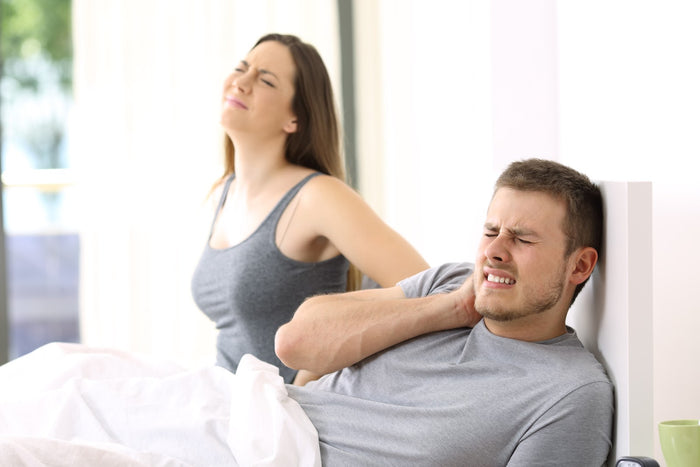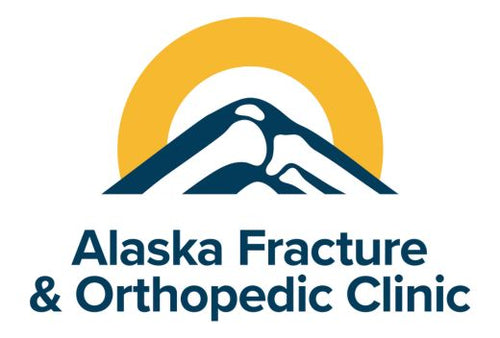How Your Body Heals During Sleep & How You Can Enhance It
By Dr. Alexa Abdelaziz PhD
In this article
When the body responds to injury, whether an elective surgery or an accidental injury, there is a generalized catabolic response (breakdown of complex substances into simpler ones), associated with weight loss, muscle atrophy, weakness and reduced activity. The body’s injury response varies depending on the extent of damage. Minor injury or surgery may create little or no response, whereas major accidental injuries or surgeries may elicit a very significant response. In other words the body has to work harder than usual to repair tissue and fight off infection and the more severe the trauma, the harder your body needs to work.
During repair, there is a breakdown of skeletal muscle protein (the amount of amino acids being stored in skeletal muscle) and a movement of the amino acids to visceral organs and the site of the injury/wound. At the site of the injury, amino acids serve to enhance the immune defense response, support vital organs and repair the wound.
Quality sleep and sufficient amounts of sleep is critical when your body is healing. During sleep, your body undergoes a number of changes that enable healing and restoration that is critical to your overall health. Neuroscience professor and author of “Why We Sleep” Matthew Walker states: “the shorter your sleep, the shorter your life span.” This simple but striking concept rings true: sleep allows the brain and body to slow down and direct more energy towards the process of recovery. When we don’t get sufficient amounts of quality sleep, these processes are short-circuited, negatively affecting energy, mood, alertness, concentration and physical functioning.
What Happens During the Four Stages of Sleep?
A normal quality sleep progresses through four distinct cycles. During these cycles there are two categories of sleep: rapid eye movement (REM) and non-REM (NREM).
The first three stages of sleep are non-REM activity. The first stage is brief and consists of the act of dozing off and transitioning into sleep. In the second stage the body and mind slow down as one begins to fall into sleep. In stage three, also known as deep sleep, the body is in recovery mode, slowing down even further. The overall brain activity slows and shows a tell-tale pattern of pulses of activity that are believed to help prevent unwanted awakenings.

Sleep Cycle Stages
The fourth stage is REM sleep and the brain activity shoots back up to levels similar to when you’re awake. While breathing and heart rate increase during REM sleep, most muscles are paralyzed, which keeps us from moving and acting out our vivid dreams. Sleep cycles last from 90 minutes to 120 minutes and the majority of REM sleep happens during the second half of the night. If you think of your body as an information processing tool, the awake state is reception; learning and exploring your surroundings. NREM sleep is reflection; storing and enhancing those new facts and skills gathered throughout the day. And REM sleep as integration; deep interconnection of these new skills with past skills and experiences. All together they enhance and build a more and more accurate understanding of how the world works.
Optimal Sleep = Optimal Health & Performance
Many large-scale epidemiological studies have tracked millions of people over many decades and seem to support a glaring conclusion referenced above: the shorter you sleep, the shorter your life. As discussed by Dr. Matthew Walker, “the leading causes of disease and death in developed nations—diseases that are crippling health-care systems, such as heart disease, obesity, dementia, diabetes, and cancer—all have recognized causal links to a lack of sleep.” Sleep truly is one of the most important things we can do to reset our body and brain health each and every day.
The systemic immune function is negatively impacted by sleep restriction. A clinical study by Smith et. al showed that sleep restriction delayed skin barrier recovery, and nutrition supplementation attenuated decrements in local immune responses produced by sleep restriction. As Dr. Walker discusses in “Why We Sleep”; although athletes know the importance of pre-game sleep, they are typically surprised by the equal or increased importance for sleep in the days post-game. He identified that post- performance sleep accelerates physical recovery from inflammation, stimulates muscle repair, and restocks cellular energy. This shows the truly advantageous effects of adequate sleep on immune function, physical recovery, and healing.
Sleeping for Healing
One of the most overlooked aspects of “sleep hygiene” (best practices to improve the quality of sleep) is what we can do nutritionally to address repair and recovery during sleep. Are there nutrients that we can be taking prior to sleep that will optimize the healing response? The evidence suggests there is and we profile a few of the nutrients here.
Protein. The role of protein is well established, but the importance of protein while you sleep remains to be further elucidated. A study by Dr. Res et al. found that protein ingested immediately before sleep is effectively digested and absorbed, as a result, stimulates muscle protein synthesis and enhances whole-body protein balance during post-exercise overnight recovery. Protein is extremely important during your day, but also equally important for recovery while you sleep. Dr. Snijders and his lab identified that, along with exercise training, pre-sleep supplementation of protein increased muscle mass and strength. This may also support the skeletal muscle’s adaptive response to exercise training and may be useful as a nutritional strategy to maintain muscle mass in the elderly.
Melatonin. Your body has some ‘built in’ sleep controls such as melatonin, which is a hormone that can help regulate the timing of sleep and the sleep-wake cycle. Melatonin is commonly utilized as a dietary supplement for insomnia but what else can it do? A study by Dr. Ochoa et al. identified that supplementation with melatonin during high-intensity exercise proved efficient in reducing the degree of oxidative stress, leading to maintenance of cellular integrity and reducing secondary tissue damage. This study also found that melatonin has protective effects against overexpression of proinflammatory mediators, and could potentially modulate inflammation signaling.
Interestingly, animal studies done by Dr. Mazepa et al. have shown that melatonin preserves glycogen stores in exercised rats via changes in carbohydrate and lipid utilization. Clearly, the link between melatonin and muscle recovery is strong and worth further exploration. Some review papers have expanded on this connection and overall have found that melatonin has a promising therapeutic role in the treatment of limiting muscle deterioration and sarcopenia.
MEND is currently working with the leading experts in the field of sleep to develop and study a solution that goes beyond inducing drowsiness to supporting a more healing and restorative sleep. To learn more please email us at info@mend.me
Sources
- Mazepa RC, Cuevas MJ, Collado PS, González-Gallego J. Melatonin increases muscle and liver glycogen content in nonexercised and exercised rats. Life Sci. 2000;66(2):153-60. PMID: 10666011. https://pubmed.ncbi.nlm.nih.gov/10666011/
- Patke A, Young MW, Axelrod S. Molecular mechanisms and physiological importance of circadian rhythms. Nat Rev Mol Cell Biol. 2020 Feb;21(2):67-84. PMID: 31768006. https://www.nature.com/articles/s41580-019-0179-2
- Res, Peter. Groen, Bart…Senden, Joan, Van Loon, Luc. Protein Ingestion before Sleep Improves Postexercise Overnight Recovery. Medicine & Science in Sports & Exercise: August 2012 – Volume 44 – Issue 8 – p 1560-1569. https://pubmed.ncbi.nlm.nih.gov/22330017/
- Smith TJ, et. al J, Montain SJ. Impact of sleep restriction on local immune response and skin barrier restoration with and without “multinutrient” nutrition intervention. J Appl Physiol. 2018 Jan 1;124(1):190-200. PMID: 28912361. https://pubmed.ncbi.nlm.nih.gov/28912361/
- Snijders T, Trommelen J, Kouw IWK, Holwerda AM, Verdijk LB, van Loon LJC. The Impact of Pre-sleep Protein Ingestion on the Skeletal Muscle Adaptive Response to Exercise in Humans: An Update. Front Nutr. 2019 Mar 6;6:17. PMID: 30895177; PMCID: PMC6415027. https://www.ncbi.nlm.nih.gov/pmc/articles/PMC6415027/
- Stacchiotti, A., Favero, G., & Rodella, L. F. (2020). Impact of Melatonin on Skeletal Muscle and Exercise. Cells, 9(2), 288. https://www.ncbi.nlm.nih.gov/pmc/articles/PMC7072499/
- Toh KL. Basic science review on circadian rhythm biology and circadian sleep disorders. Ann Acad Med Singap. 2008 Aug;37(8):662-8. PMID: 18797559. https://pubmed.ncbi.nlm.nih.gov/18797559/
- Vyazovskiy V. V. (2015). Sleep, recovery, and metaregulation: explaining the benefits of sleep. Nature and science of sleep, 7, 171–184. https://www.ncbi.nlm.nih.gov/pmc/articles/PMC4689288/
- Walker, M. (2018). Why we sleep. Penguin Books.



